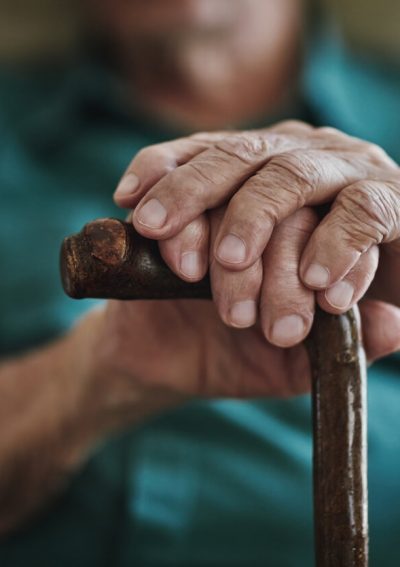Nursing Home Abuse Lawsuits
A nursing home abuse lawsuit is a legal action taken against a nursing home for mistreatment of a resident. Most victims file civil lawsuits for compensation, though some may file criminal lawsuits for restitution. Many civil lawsuits end in settlements.

Elder abuse is not a new problem, and it’s common, according to the Centers for Disease Control and Prevention. While elder abuse can occur anywhere, a growing number of nursing home residents experience abuse.
About 1.3 million Americans lived in nursing homes in 2015, according to the CDC.
Nearly 1 in 3 nursing homes were cited for violations, according to data cited by the National Center on Elder Abuse. About 1 in 10 homes had violations that caused serious injury or harm. Some of these injuries were serious enough to be life threatening.
Over the years, thousands of people have filed nursing home lawsuits to seek compensation for injured loved ones. These lawsuits can help families hold nursing homes accountable for negligence and abuse.

Types of Abuse
Forty-four percent of nursing home residents reported being abused, and 95 percent reported that they were neglected or had seen another resident neglected, according to NCEA.
- Physical (29 percent)
- Resident to resident abuse (22 percent)
- Psychological abuse (21 percent)
- Gross neglect (14 percent)
- Sexual abuse (7 percent)
- Financial exploitation (7 percent)
Signs of Abuse
About fifty percent of nursing home staff admitted to mistreating residents in a study cited by NCEA. Neglect was the most common type of mistreatment.
Signs of nursing home abuse or neglect can be physical and mental.
- Have bedsores
- Seem upset or agitated, are withdrawn and don’t communicate
- Show signs of wandering
- Seem malnourished or dehydrated
- Suffer bed injuries or asphyxiation
- Frequently have unexplained injuries, such as broken bones, sprains, bruises or dislocations
- Have broken eyeglasses
- Suffer from frequent infections
- Suddenly lose money or possessions
- Are always falling
- Have trouble sleeping
- Lose or gain weight
- Have changes in behavior
- Are aggressive or uncooperative
Reporting Abuse
If you suspect a person is in life-threatening or immediate danger, the Department of Health and Human Services recommends calling 911 right away.
Concerned people can contact the local Adult Protective Services, Long-term Care Ombudsman or police. The National Center on Elder Abuse has resources to help you report abuse.
You can also visit Medicare.gov for tips on reporting nursing home problems.

Nursing Homes and COVID-19
During the COVID-19 pandemic, elder abuse claims climbed. More than 37,000 nursing home residents had died of coronavirus by March 31, 2020, according to ABC News. Some say inadequate staffing and lack of protections led to the deaths.
Some families are filing lawsuits.
For example, one California family filed suit against Redwood Springs Healthcare Center after their father died. The suit alleges willful misconduct, elder abuse and wrongful death, according to McKnight’s Senior Living. The family is asking for more than $25,000 in damages.
But suing a nursing home may be challenging because health care facilities and health care professionals have certain protections during the pandemic.

Filing a Lawsuit
A lawyer can help people file a nursing home lawsuit. These types of cases are handled on a contingency basis, which means the law firm doesn’t get paid unless they win a settlement or verdict.
Statutes of limitations vary by state, and people have anywhere from one to six years to file a nursing home abuse lawsuit. So it’s important to consult an attorney as soon as possible to preserve the right to file.
- Resident is injured or dies
- Attorney meets with client, investigates claim and files lawsuit
- Defendant is served, defendant answers the lawsuit and discovery happens
- Settlement proceedings or mediation may begin (most claims are resolved in this stage)
- If the case is not settled, it goes to trial and both sides present their case before a judge and jury
- Settlement or jury award is disbursed
How Long Does It Take to Settle?
Just like most lawsuits, nursing home claims can take a while to resolve. Most attorneys say these cases can take anywhere from 18 to 24 months. If the case goes to trial, it may take longer.
If there is a jury verdict, either party can appeal the decision if they don’t agree with the outcome.
Proving Nursing Home Negligence
In order to successfully litigate a nursing home abuse case, a plaintiff must prove several things. This is called the burden of proof.
- The nursing home had a duty to the victim.
- The nursing home breached its duty of care.
- The resident’s injury was caused by the breach of care.
- The victim suffered damages as a result of the abuse.
Nursing homes may defend themselves by saying that the resident’s injury was inevitable because of their poor health.

Damages Included
Damages included in nursing home abuse lawsuits range from medical bills to, very rarely, punitive damages. Plaintiffs get punitive damages if they prove the nursing home’s conduct was grossly negligent and intentional. These damages punish the defendant for wrongdoing.
- Lost wages if the victim was working at the time of the injury or death
- Impaired ability to earn if the injury prevents the victim from working
- Pain and suffering
- Medical bills (before and after death)
- Disfigurement
- Funeral costs
- Loss of companionship
- Loss of enjoyment of life
- Mental anguish
How Much Is My Case Worth?
Each case is different and it is difficult to estimate a case’s value.
Generally, the amount of the settlement depends on the victim’s damages or the surviving family’s damages in a wrongful death case. Wrongful death cases tend to have higher settlement and verdict amounts.
Some attorneys say settlements may range from $50,000 to more than $250,000 on average. But some verdicts have been in the millions.
9 Cited Research Articles
Consumernotice.org adheres to the highest ethical standards for content production and references only credible sources of information, including government reports, interviews with experts, highly regarded nonprofit organizations, peer-reviewed journals, court records and academic organizations. You can learn more about our dedication to relevance, accuracy and transparency by reading our editorial policy.
- Centers for Disease Control and Prevention. (2020, May 20). Nursing Home Care. Retrieved from https://www.cdc.gov/nchs/fastats/nursing-home-care.htm
- Department of Health and Human Services. (2014). How do I report elder abuse or abuse of an older person or senior? Retrieved from https://www.hhs.gov/answers/programs-for-families-and-children/how-do-i-report-elder-abuse/index.html
- Medicare.gov. (n.d.). Reporting and resolving nursing home problems. Retrieved from https://www.medicare.gov/what-medicare-covers/what-part-a-covers/reporting-resolving-nursing-home-problems
- National Center on Elder Abuse. (n.d.). Abuse of Residents in Long Term Care Facilities. Retrieved form https://ncea.acl.gov/NCEA/media/docs/Abuse-of-Residents-of-Long-Term-Care-Facilities-(2012)_1.pdf
- National Center on Elder Abuse. (n.d.). Reporting Abuse. Retrieved from https://ncea.acl.gov/Suspect-Abuse/Reporting-Abuse.aspx
- National Institute on Aging. (n.d.). Elder Abuse. Retrieved from https://www.nia.nih.gov/health/elder-abuse
- Novotney, A. (2020, August 6). COVID-19 lawsuit against nursing home alleges wrongful death. Retrieved from https://www.mcknightsseniorliving.com/home/news/business-daily-news/covid-19-lawsuit-against-nursing-home-alleges-wrongful-death/
- PBS News Hour. (2020, June 23). Elder abuse appears to be climbing during the pandemic, experts say. Retrieved from https://www.pbs.org/newshour/nation/elder-abuse-appears-to-be-climbing-during-the-pandemic-experts-say
- Romero, L. & Pecorin, A. (2020, May 31). As states protect nursing homes from lawsuits, families fear they have little recourse. Retrieved from https://abcnews.go.com/Health/states-protect-nursing-homes-lawsuits-families-fear-recourse/story?id=70973049
Calling this number connects you with a Consumer Notice, LLC representative. We will direct you to one of our trusted legal partners for a free case review.
Consumer Notice, LLC's trusted legal partners support the organization's mission to keep people safe from dangerous drugs and medical devices. For more information, visit our partners page.
877-263-1315
